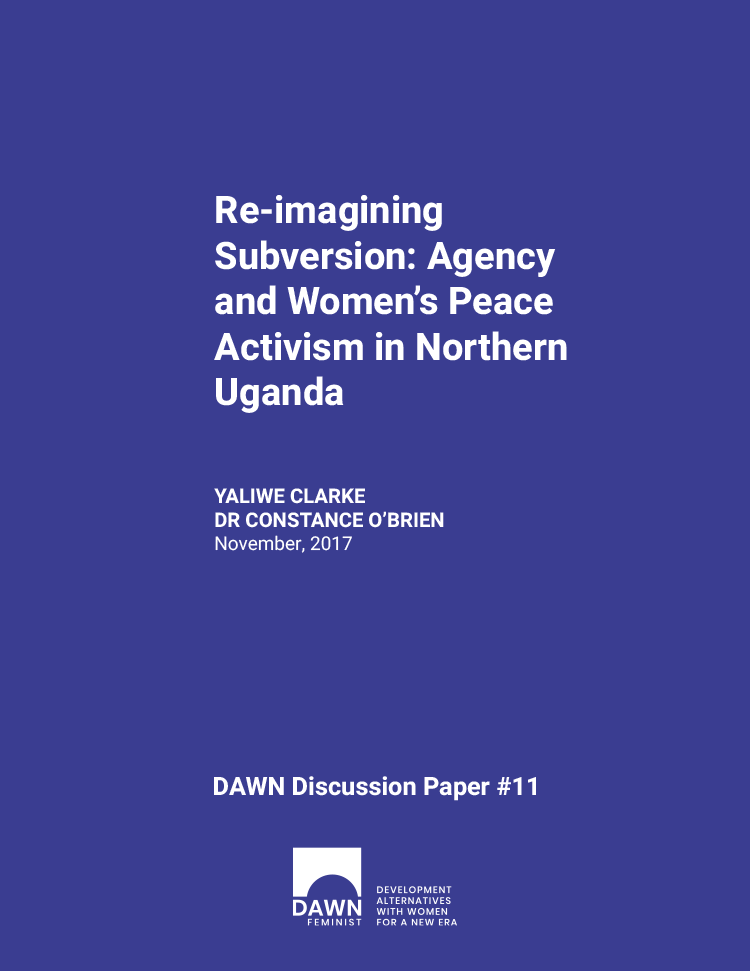This chapter provides an analysis of the micro politics of women’s community peace initiatives in Northern Uganda. It also interrogates the extent to which women peace activists addressed structural violence within an existing liberal peace building framework. A key question that emanates from the findings presented is whether women’s agency in community peace building subverts patriarchy. Data from sixteen in-depth interviews with people who have worked in community peace organisations in Northern Uganda (between 1998 and 2011) reveals the gendered, socio-political and economic effects of the war. Research showed that shifts in patrilineal family networks enabled women peace activists to become important nodes of material support during and after the war in Northern Uganda. Furthermore, critical insights are offered as to how women’s peace building efforts replaced men’s (previous) dominant role as material providers and protectors of the family. It would seem that women’s peace building efforts with its accompanying economic and political shifts provided them with an opportunity to contest various patriarchal spaces.
Neo – Liberal peace building and Feminism– a framing argument
The Beijing Conference on Women in 1995 and the ratification of the Rome Statute of the International Criminal Court has resulted in an increase in the public profiling of women and women’s organisations working for peace. The Beijing Platform for Action of 1995 included sections on “violence against women” and “women and armed conflict”. In each section there is explicit mention of forms of sexual violence that take place during armed conflict such as “…murder, systematic rape, sexual slavery and forced pregnancy.” It included a call for these kinds of violence to be prevented or addressed in broad efforts for peace and security, especially in relation to the rights of women.iThis was followed by the passing of United Nations Security Council Resolution 1325 on Women, Peace and Security in October 2000 and a furthering of international pressure (largely rhetorical) to include ‘women’ in formal peace processes. These international instruments focus on the prevention of violence against women during war as well as on women’s efforts to bring about peace.

